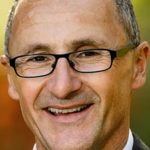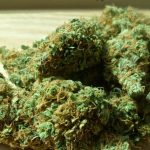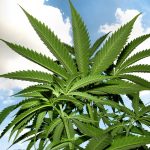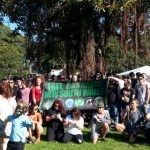SA Liberals Intensify War Against Cannabis Users
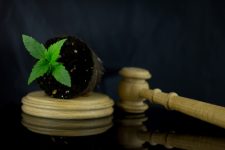
Recreational cannabis will be legalised nationwide in Canada on 17 October. In the US, smoking pot is now permitted in nine states. And back in April, Australian Greens leader Richard Di Natale launched a campaign calling for the plant to be legalised in this country.
However, South Australian attorney general Vickie Chapman hasn’t been paying attention. Last week, she announced that the newly-elected SA Liberal government is proposing that penalties for cannabis possession be quadrupled.
The new legislation currently contains an amendment to section 33L of the Controlled Substances Act 1984, which would increase the maximum penalty for possessing or consuming cannabis from $500 to $2000.
For good measure, it also adds a new penalty of up to two years behind bars for the offence.
“This is a serious drug and those who have previously said it was a recreational drug, not much worse than tobacco, really those days are over,” Ms Chapman told the ABC. But, someone should inform her that US health experts list tobacco, not cannabis, as one of the top three deadliest drugs.
The attorney general is proposing this cannabis crackdown in the jurisdiction that first decriminalised personal possession of the plant back in 1987. The measure is part of the “winning the war on drugs” platform the Marshall government ran during its campaign for the March election.
Marshall’s drug war
Introduced into SA state parliament on 21 June, the Statutes Amendment (Drug Offences) Bill 2018 proposes a raft of increased drug penalties, as well as limiting the number of times an individual can enter into drug diversion to two programs every four years.
The proposed new laws are part of the SA Liberals wider drug war package, which includes SA police commissioner Grant Stevens developing a protocol that will allow drug detection dogs to be sent into public high schools to conduct searches.
“The announcement by the new Marshall Liberal Government that they are willing conscripts to a war on drugs has come as a surprise to many South Australians,” said SA Greens MLC Tammy Franks.
“The concept of ‘three strikes and you’re in’ type criminal penalties for personal cannabis possession is starkly out of step with public opinion and evidence-based public policy,” she told Sydney Criminal Lawyers®.
Ms Franks further stated that while she can’t provide a definitive answer as to why the Liberal government has taken this “tough on drugs approach,” her assumption is that it thought it “was a vote winner.” However, “public opinion is already proving that assumption incorrect.”
The crackdown on cannabis
Weeded Warrior director Damon Adams said the SA attorney general is “demonstrating the textbook reefer madness response.” He added that the proposed new penalties fly “in the face of cannabis reform and legalisation that’s quickly taking place around the globe.”
The long-time cannabis campaigner pointed out that while Ms Chapman stated that marijuana should be treated like other controlled substances, such as heroin and cocaine, she failed to give a reason as to why.
Mr Adams, who served as a South Australian police officer for a number of years, believes the proposed law is a revenue raising tactic. And he also explained that cannabis is the “lifeblood” of the South Australian police force’s budget.
“Cannabis is a huge earner for any police force. Not only in revenue for expiation notices, but also to justify the drug budget for the next financial year,” he said. And Adams “suggested that someone should tell them how much tax revenue states in the US are making from a legal cannabis market.”
In 2016, the US state of Colorado’s recreational cannabis market generated $198.5 million in tax revenue alone, which was funnelled into public health programs and schools.
Misguided logic
The SA attorney general has stated that the harsh cannabis penalties and the cap on the number of drug diversion programs an individual can enter into are based on the recommendations made by SA deputy coroner Anthony Schapel in the coronial report into the death of Lewis McPherson.
On New Year’s Eve 2012, 18-year-old McPherson was shot dead by 17-year-old Liam Humbles, who was drunk and under the influence of MDMA and cannabis at the time. Humbles had also been the subject of five drug diversion programs over recent years.
In the report, Mr Schapel recommended “the maximum monetary penalty for the offences of possession, smoking and consumption of cannabis, cannabis resin and cannabis oil be increased from $500 to a figure that reflects the deleterious effects” of the drug.
According to Ms Franks, her reading of the recommendation does not warrant Ms Chapman’s call for gaol terms for cannabis use. She stressed that it also ignores “the teenager’s possession of firearms and the use of alcohol and other drugs.”
Australian Drug Law Reform Foundation president Dr Alex Wodak told the Guardian that linking cannabis use to murder was nonsense. “Most people who smoke cannabis crawl into a corner and fall asleep or they eat ice cream. They don’t go around murdering people,” he made clear.
Opinion on the beat
And evidently, the average police officer doesn’t agree with Ms Chapman’s proposal either. “I’ve spoken to many serving members,” Mr Adams said, “and the general response has been a slow groan accompanied with a backwards head tilt and eye roll.”
The possession and consumption of cannabis is a victimless crime, Adams further related. He said that while police officers are busy enforcing cannabis laws, they’re prevented from proactively pursuing offenders who are perpetrating crimes with actual victims.
Prohibition is the real culprit
Indeed, in the 2017 Australia 21 report into drugs, a number of former Australian police commissioners and assistant police commissioners, as well as ex-heads of corrective services called for all psychoactive drugs to be legalised and regulated.
The think tank suggests that the legalised market should be established incrementally and that substances that are currently illicit be taxed, but not advertised. And some of these drugs should have stringent controls placed upon them, such as prescription by a doctor.
“Prohibition doesn’t work,” Ms Franks concluded. “As the rest of the world increasingly recognises this and puts their mind to treating drug use as a health issue, not a criminal one, South Australia is strangely out of step.”


